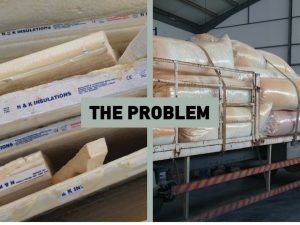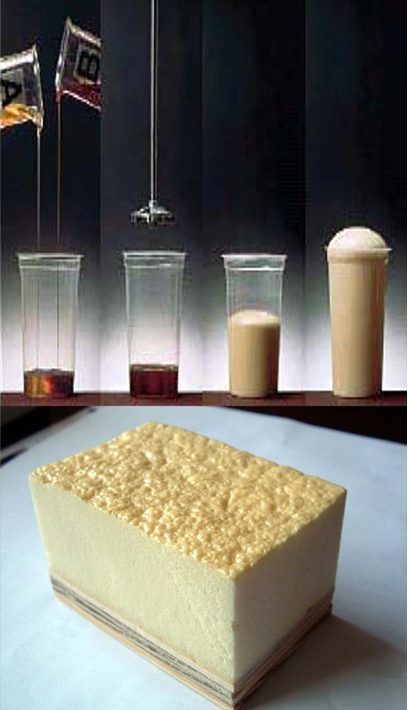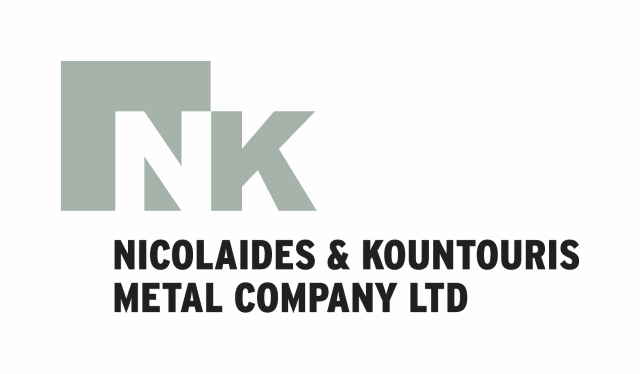The problem
Rigid polyurethane foam is a thermal insulating material used in refrigerators, boilers, and thermal insulating construction products.
The polyurethane waste has a long life span. It takes about 300 (three hundred years) to decomposed and that’s why we cannot drop it in the land fillings.

The solution
The Research and Development department of our company, developed an innovative method of recycling rigid polyurethane foam and polystyrene by producing a ready-mixed thermal and sound insulating mortar.

The products were developed by our company as part of our initiative to effectively manage waste generated from the production and use of polyurethane and polystyrene products, such as sandwich panels. Previously, polyurethane and polystyrene waste were improperly and unlawfully disposed of in landfills. However, the government of Cyprus has recognized the importance of waste management and has enacted legislation mandating the recycling of polyurethane and polystyrene materials.
The whole project was divided into 5 stages:
- Development of a comprehensive polyurethane waste management system, aimed at recycling waste generated during the production and utilization of polyurethane products. This system not only enabled our company but also facilitated other companies in fulfilling their legal responsibilities concerning polyurethane waste management, as stipulated in the Waste Laws of 2011 and 2012 implemented by the Cypriot government. Nicolaides & Kountouris Metal Company Ltd holds the exclusive license for Polyurethane Waste Management in Cyprus.
- Research and development of cutting-edge technologies for designing and fabricating advanced equipment dedicated to waste management and processing. Additionally, development of specialized equipment for producing thermal insulation cementitious mortar, utilizing industrial waste and surplus rigid polyurethane foam as raw materials.
- Production of a polyurethane cementitious mortar (THERMINK) with unique physical, thermal and mechanical properties which is primarily composed of 90.5% rigid polyurethane foam (by volume), cement, and other additives.
- Extension of existing license for managing polyurethane waste to include expanded and extruded polystyrene waste. The extension enabled processing of polystyrene waste to produce a new cementitious mortar product (PS THERMINK) with equally distinct physical, thermal, and mechanical properties. Moreover, the initial waste management system was further developed and improved for even better results.
- Optimization of the mortar production system by leveraging European Programs. The system can be implemented worldwide by companies seeking to convert polyurethane and/or polystyrene waste into eco-friendly, user-friendly, high-quality, and cost-effective materials (THEMINK and PS THERMINK).
Both THERMINK and PS THERMINK are packaged in 75-liter paper bags, and their use only requires mixing with water. The two products are used for thermal and sound insulation of floors, flat roofs, and ceilings. Additionally, they are suitable for filling voids and gaps due to their low relative density (special gravity).
The mixing process is relatively simple since all the components are already mixed and packaged in the paper bags. All that is required is to mix the contents of the bag with clean water. The mixing should last only a few minutes resulting in the formation of a uniform mixture. This process can be carried out either with an electric mixer or a conventional concrete mixer.
The content of the bag along with the water is a ready-to-use cement mortar, enough to cover the surface and thickness of a square meter, which means it’s a final, ready product. For calculation purposes, for THERMINK 15 sacks are needed for every cubic meter.
Similarly, for PS THERMINK 13 sacks are needed for every cubic meter.


